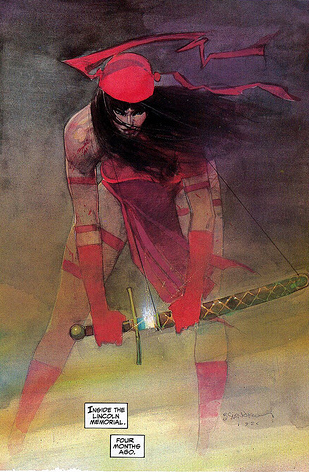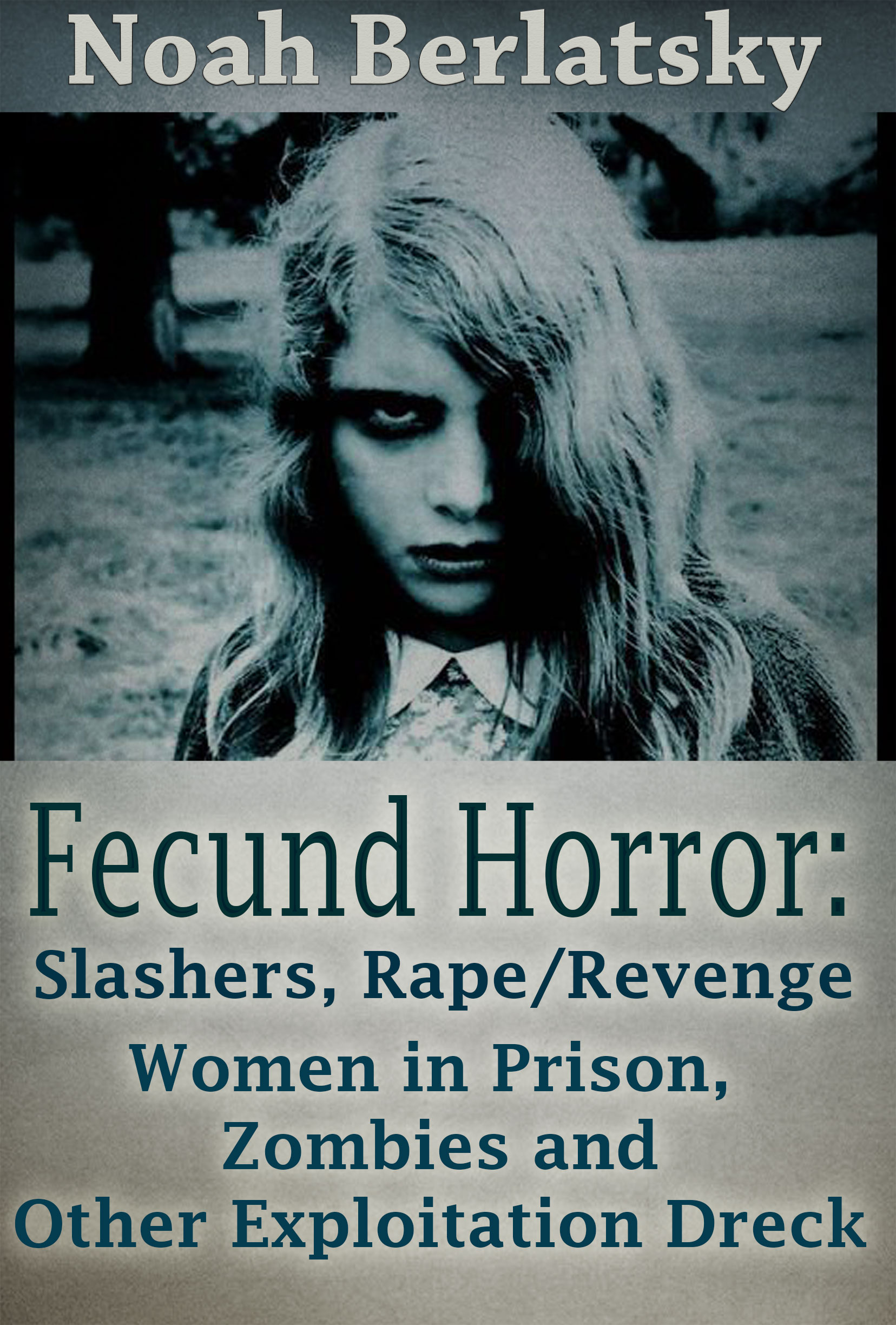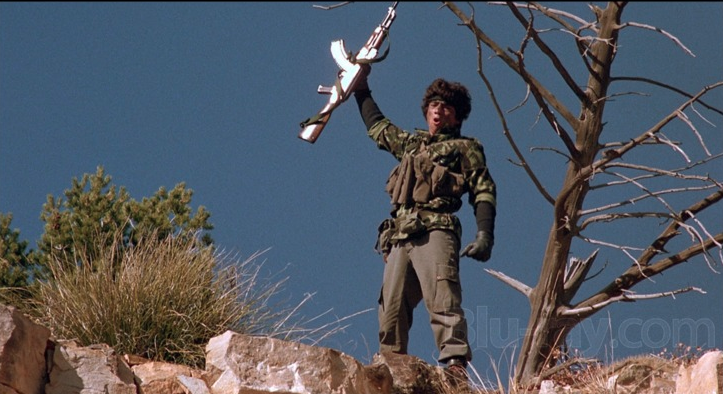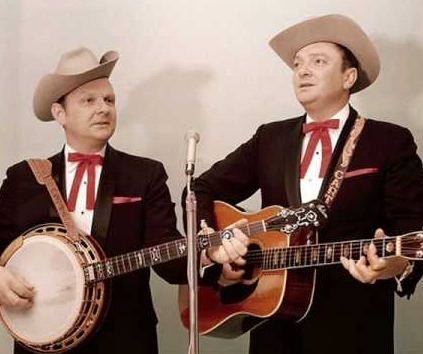
Todd: You know, sometimes I feel like my whole life is just a series of loosely-related wacky misadventures.
Diane: I think that’s just what being in your twenties is.
From Bojack Horseman, season 5, episode 2, ‘Chickens’
When I was a child, a certain relative used to berate me for things I hadn’t done. Not just crimes that I might plausibly have committed – like, say, being rude, or not studying enough for a test. No, one recurring theme of her anger was how I was certain, when I grew up, to put my parents in a nursing home. Having driven my father to his death from overwork through my insatiable appetite for swimming lessons, I would abandon my mother to gasp out her final breaths in agonising solitude, probably in some kind of kerosene bath. This after having sucked them dry, my long suffering parents, of all the money they had sacrificed their very lives to accumulate, all for my sake, yes, all for me.
Ah, nostalgia. These days, anyone who knows me well will say that I’m a dour sort of person, not a fan of much aside from sleeping and the internet. It would be tempting, though not exactly rigorous, to point the finger at my childhood, genetics and experience being entangled as they are. I don’t pretend to know how much of my general anomie is attributable to a childhood during which death and money were always on my brain, always closely associated, for reasons we will get to later. I don’t want to imply that my family was otherwise than deeply loving. But if anything, this made the underlying message of all those guilt-inducing monologues all the more horrific: not only are you murdering actual people by your selfish demands for movie tickets, you are killing those who love you most.
When I was in my first year of university, I started listening to Belle and Sebastian. They never made my cry, although I often thought there would be something cathartic about doing so. I do remember how a very intimate part of my psyche quivered – yes, that is the operative word – listening to the background stylophone part in ‘Sleep the Clock Around’. I don’t know how many times I listened to ‘Sukie in the Graveyard’ – several dozen, fifty five? – but for a while, I took it as a kind of manual for life. Like Sukie I would be exuberant yet unhappy in an aesthetically pleasing way. I would slum it financially, in an artistic fashion. I would be sexually open but emotionally abstracted from my various affairs, on a quest for romantic self-knowledge rather than actually participating in anything that could be classically defined as romance.
I go through stages with Belle and Sebastian. There are times I go for days listening to their back catalogue on Youtube. Sometimes the music and lyrics still make me quiver, and sometimes, listening to them makes me want to put my head through the screen with embarrassment on their, and my behalf. I always go to see them when they’re in town, either alone or with a friend, and I hope I don’t stop doing that, and that they don’t stop coming. At a festival, I pushed my way to the front before they came on, to make sure I got a good spot. The opening band was the Hold Steady, and for a forty minute set I was moshed back and forth by an audience comprised of large beefy guys of extensive hairiness. When it was time for B&S to start, these men melted away to be replaced by a row of skinny, pale-faced children (or child-like adults), wearing glasses and swaying gently from side to side with expressions of deep melancholy.
*
There is a particular genre of art devoted to evoking, to a greater or lesser extent, the mood and period of life represented for me by those Belle and Sebastian albums. It’s a genre which spans numerous forms, and includes but is not limited to: Frances Ha and Mistress America by Noah Baumbach and Greta Gerwig (movies), This Side of Paradise by Scott Fitzgerald (novel), Girls by Lena Dunham (shadow puppet theatre), God Help the Girl by Stuart Murdoch (movie), My Misspent Youth by Meghan Daum (essay), Goodbye to All That by Joan Didion (essay), and Raphael Bob-Waksberg’s tumblr. (RBW writes the excellent Netflix series Bojack Horseman).
The protagonist (or writer, in the case of the autobiographical essays) is always an avatar of Sukie, or so it seems. They’re almost always white, and you can tell by their lingo, lifestyle accoutrements, etc that they were born into the middle or upper class. At the time of the story, though, they’re experiencing a particular kind of broke-ness characterised by housing instability and poor decisions about cash – say, flying to Paris on a whim and a credit card. They don’t have any dependents – where money changes hands, it’s always parents providing support rather than the other way round. (Children are out of the question). They’re always an artist of some sort – writer, dancer, musician – but don’t seem to spend a lot of time making actual art. They live in New York, and this fact is highlighted. There are chaotic and often hilariously awful romantic and sexual encounters, but sex isn’t exactly the point – the real quest is for ‘a deeper understanding of oneself’.[1]
There are stylistic things in common, too. A sense of distance – the story represented as if it’s already a part of a romantic past, mythologising life even as it’s happening. (Why are Belle and Sebastian covers always in black and white?) Often, there’s only effectively one character (the protagonist), the others being less individual people than dramatisations of certain situations or fears that the protagonist has faced, and the challenges faced by this protagonist tend to be internal rather than external. Losing a job, say, might lead to embarrassment, rather than being unable to care for your sick parent (or to pay for their well-deserved kerosene bath). What’s at stake is never genuine poverty, or loss of life or health, but a particular conception of self. The quest is working out what this self-conception should be.
*
There was this one summer we all pretended to be adults and lived in Florida for a few months. The original idea was to move to New York and do comedy, but the apartment fell through so we decided to go somewhere else…
We rotated who slept where every night – two in the master bedroom, one in the smaller bedroom, one on the living room couch. I didn’t mind sleeping on the couch, because it meant I had the whole downstairs to myself and it meant when the first person came down for breakfast at two or three in the afternoon, I would wake up too and I wouldn’t miss anything.
We had dial-up internet. We made each other food. We had a make-your-own-pizza night. One night Ben made us all soup in bread bowls and I put too much salt in mine…
One day I swam out really far and I swore I could feel the undertow carrying me out to sea. I thought I was going to die, but I was too embarrassed to call for help. I slapped the waves with my arms full of jelly and kicked my soft legs as hard as I could, struggling back to shore.
#thisismyyouth
From Raphael Bob-Waksberg’s tumblr, boringoldraphael.tumblr.com
Obvious stuff: these features I’ve identified don’t have to be shortcomings. Being white and rich doesn’t preclude you from being the subject of passionate, interesting art, and no story can be all things or reflect all people. I’ve never minded the whiteness of ‘Girls’, which presumably reflects Lena Dunham’s own experience, and therefore what she feels most qualified to dramatise. As Ta-Nehisi Coates puts it: ‘My question is not “Why are there no black women on Girls,” but “How many black show-runners are employed by HBO?”’.[2] Still, like bottom trawlers depleting global fishing stocks, continually mining the same milieu runs a risk of diminishing returns. Watching Frances Ha (and its quasi-follow up, Mistress America) just after watching Girls gave me a queasy feeling. Adam Driver is a wonderful, charismatic actor, as are almost all the cast of Girls, but I’m sick of seeing them and their family members in coming of age stories in New York.
More damningly, the absence of permanent consequences to failure is part of what appeals, but also puts a lid on how meaningful or memorable these stories can be. I admit to being obsessed with money and death to the point of minor dysfunction (thanks, wacky ethnic relatives!), but, well, they are objectively important parts of life. Without them, it can feel like there’s not really much at stake – if things go wrong for the hero, this will presumably be followed by further wacky misadventures until they go right again. I fully acknowledge, though, that people’s mileage on this issue will vary – First World problems are real problems, after all, and people in the First World have feelings too, and just because, say, people living through a civil war don’t spend their time panicking about, say, the intrinsic meaninglessness of existence doesn’t mean it’s not a profoundly real experience for those who do think about such things. (And who says people in civil wars don’t experience existential panic? Has anyone asked?) What’s considered ‘important’ enough to be represented in fiction is always going to be subjective, no doubt the work that feels intensely truthful to me seems ridiculously trivial to someone else, and who am I to comment.
Another elision: for stories supposedly about artists, there is surprisingly little space devoted to showing how people actually make, or become good at making, art. By ‘becoming good’, I don’t mean accumulating turbulent life experiences to turn into a novel – I mean actually doing stuff, and doing it again until you get better at it, the arduous process of Malcolm Gladwell-ing your way to the top. Possibly the process of learning to write, dance, etc is inherently boring and undramatisable, like making an action sequence in a movie about hackers (what are you going to show, lots of fingers stabbing at a laptop?) Possibly the issue cuts too close to the bone for the creators, and has to be presented at arm’s length to avoid uncomfortable self-exposure. Still, these stories can’t help but function as a sort of humblebrag, a case of highly accomplished people trying to charm you with a dumbed-down version of themselves. There’s something unreal about these artistic avatars, stripped of the hustle and determination they must have shown to get to a position where they can successfully self-deprecate. Look at how young and adorably clueless we were, they seem to say. Look at our lovability, and love us!
It strikes me now that the people I knew in New York all had curious and self-defeating sidelines. They imported garden chairs which did not sell very well at Hammacher Schlemmer or they tried to market hair staighteners in Harlem or they ghosted exposés of Murder Incorporated for Sunday supplements. I think that perhaps none of us was very serious, engagé only about our most private lives.
From ‘Goodbye to all that’, by Joan Didion
*
Money and death were always linked in my relatives’ minds. The word they used as a synonym for earning enough to support yourself and your dependents was ‘survive’. As in: ‘You can make pocket money working as a [academic, teacher, postman], but is it enough to survive?’ Wasting time, failing to study enough at school, any kind of decision in favour of less rather than more future earnings: all of these were linguistically equated to a rejection of survival, aka, a rejection of life itself, aka, a suicidal death wish.
Given my family’s status as recent migrants, from a country that only recently made the transition from Third to First World status, this wasn’t exactly a crazy attitude. Neither, however, can it be described as entirely sane. They grew up poor, my relatives, poor to a depth of material deprivation that hardly exists in a contemporary Western nation. They were born to the kind of lives where the word ‘survive’ was not just a metaphor, but actually made some kind of literal sense. They may not be poor now, but these early experiences have given rise to a set of attitudes they’ve sought to inculcate in the next generation, with mixed success. A strong preference for concrete achievements, like degrees and jobs, over more nebulous ones like self-discovery. Distrust of introspection, which might so easily shade into ‘navel gazing’ – a dangerous distraction from the more fundamental business of getting and spending and accumulating. A work ethic which, in their adopted Australia, might be regarded as bordering on the pathological.
When I was a child, a certain relative (the same one who used to berate me for transcending the laws of time and space to put my parents in a nursing home) used to occasionally remark in tones of great disgust, “Life is good.” This was not in any way reflective of her own attitude. She made it clear, more or less explicitly, that she thought life was pretty shit. Rather, it was an insult deployed to describe other people, maybe me, maybe some acquaintance who was committing the cardinal sin of enjoying themselves too much. Having too much fun – or just being happy, full stop – was evidence of a shallow and vacuous character.
It’s not that I’m ungrateful, really. This is not a story of my persecution at the hands of my crazy ethnic relatives. In a lot of ways, they were objectively correct – life was good for me, in contrast to the deprivation they experienced. And to the extent that I had the privilege of growing up to be a dreamy, spoiled brat, it was thanks to their actions: their strength, their sacrifice a necessary condition of my current lifestyle and aspirations. You can see, then, how this genre might not appeal to them; how they might, at best, be nonplussed by all of these stories about twenty-somethings on a journey to ‘find themselves’. You can see how they might, at worst, find the entire concept a little bit rage inducing and punchable.
For all that, though, I do believe there is something beautiful and idealistic and right about these stories. They speak to something which shouldn’t be ironicised away, namely, an impulse to find life and love and all good things. “It makes me want to run out and find the love of my life,” as someone wrote in the comments on the Youtube clip for ‘Dylan in the Movies’. I don’t want to be the kind of person who mistakes the ‘The Life Pursuit’ for life, who thinks the world is really made up of skinny white people wearing berets looking wistfully out into the middle distance. Still, nauseating though it may be, I also don’t want to cease being the kind of person who still on occasion gets weepy over Belle and Sebastian albums.
*
He stretched his arms out to the crystalline, radiant sky.
“I know myself,” he cried, “but that is all.”
From This Side of Paradise, by F Scott Fitzgerald
Self-knowledge is a worthy goal, and this passage is beautiful. But if self is the only thing you know, or are interested in knowing, then you are probably an asshole.
*
What would a successful ‘twenty-something’ story look like – one which preserved the romanticism, the elegiac feeling evoked by the stories described above, but avoided their solipsism, elisions and unexamined privilege? Obviously I can’t answer that question here without, say, being a literary genius, but I can describe some works which manage to an extent to avoid these pitfalls.
In Norwegian Wood by Haruki Murakami, Toru Watanabe studies English, hates phoneys, and does his best to ignore Japanese politics, all while wondering around an emotional landscape supersaturated with loss and longing. While nursing his suicidal sort-of girlfriend Naoko, he meet exuberant, sexually liberated Midori. At first, I was scared that Midori would be a sort of a literary Manic Pixie Dream Girl (see, for instance, her super hotness and predilection for dragging the unwitting Toru to watch porno movies). As the story progresses, though, she reveals a disarming mix of resilience and vulnerability. This is her, explaining to Toru how she cares for her father, who has brain cancer:
Relatives come to visit and they eat with me here, and they always leave half their food, just like you. And they always say, “Oh, Midori, it’s wonderful you’ve got such a healthy appetite. I’m too upset to eat.’ But get serious, I’m the one who’s actually here taking care of the patient! They just have to drop by and show a little sympathy. I’m the one who wipes up the shit and collects the phlegm and mops the brows. If sympathy was all it took to clean up shit, I’d have 50 times as much sympathy as anybody else! …
What do they think I am, a donkey pulling a cart? …
I can be hurt, you know…
And on top of it, you see your savings disappear. I don’t know if I can keep going to university for another three-and-a-half years.
Money and death, my twin preoccupations, are very much present in the novel. I counted four suicides and one unexplained disappearance, apart from Midori’s father’s cancer, and even the nominally ‘healthy’ characters all seem to be teetering on the brink of an unnameable despair. There’s an implied soundtrack of nostalgic music (the title is a bit of a giveaway), but here, unlike in other of his novels, Murakami knows exactly how to walk the fine line between sentiment and sentimentality. Toru’s enough of an everyman that you can project yourself onto him, but particular enough to be a person instead of just a surrogate for the reader. (The bit about his annoying roommate is hilarious). He feels no malice towards anybody, and is straightforward to the point of naiveté. He is studying English literature, but never mentions any literary aspirations of his own – or indeed, any aspirations at all. In career terms, he is perfectly passive, but this passivity isn’t rewarded by artistic or other success. His triumph at the end of the novel is, to borrow my relatives’ term, ‘survival’. What he survives is not so much career disappointments or injuries to his self-esteem, but a more free-floating kind of despair.
As a novelist, Murakami has often been charged with the same accusations of childishness and emotional stasis as Belle and Sebastian. This is fair enough. His protagonists are almost invariably men in their late 20s or early 30s, living in Tokyo, less overtly self-obsessed than, say, Hannah Horvarth or Amory Blaine, but still preoccupied with the question of who they are and what to do with themselves. Still, there’s an additional depth that saves Toru from the solipsism and narcissism which plague the former characters, an assumption of responsibility towards other people. An awareness that loss and entropy and decay are things that actually happen in life. Which can deform a life, not only a self-image, and not just temporarily, either.
*
‘Survival’. Real physical and financial scarcity, and the imperative to escape. After a point, it becomes a psychological crutch, a way of not taking responsibility for your own decisions. Who can blame you for any choice you made, if it was what you needed to do to ‘survive’?
I don’t doubt my relatives’ tales of poverty during their early years, but I do wonder about their reliability as narrators when they describe the period that came after. Certainly after moving to Australia they were no longer poor (or not on paper, at least – psychologically there might have been a different situation). They must have had more choices than they let on. There must have been hundreds of moments when they might have moved in the direction of fun and fulfillment, rather than financial accumulation. Casting every decision in hindsight as being the only possible choice under the circumstances, the only thing a responsible adult could do given the yawning beaks of their dependents, is a great way of avoiding regret, guilt, internal conflict. Or rather, displacing it onto someone else. ‘All of this was for you!’
What happened, I think, is that my relatives’ view of themselves, and of their viable possibilities, was formed against a backdrop of material deprivation. They were able to escape this deprivation through a combination of personal fortitude, intelligence, and luck. But having escaped, they found themselves set in ways of thinking which precluded their fully enjoying their good fortune. They would always be afraid, and enraged with other people who (in their view) were too dumb or innocent to know that there was something to be afraid of.
*
The last point I want to make about the ‘twenty-something coming of age’ genre is the most esoteric. There are plenty of ‘young artist’-type protagonists, but where are the stories about people who like maths or robotics or computer science or engineering? To put it more bluntly: where are the nerds?
Murakami, again, provides something of a counterpoint:
Shinjuku Station is enormous. Every day nearly 3.5 million people pass through it, so many that the Guinness Book of World Records officially lists JR Shinjuku Station as the station with the “Most Passengers in the World.” A number of railroad lines cross there, the main ones being the Chuo line, Sobu line, Yamanote line, Saikyo line, Shonan–Shinjuku line, and the Narita Express. The rails intersect and combine in complex and convoluted ways… During rush hour, that maze transforms into a sea of humanity, a sea that foams up, rages, and roars as it surges toward the entrances and exits. Streams of people changing trains become entangled, giving rise to dangerous, swirling whirlpools.
…
It’s hard to believe that every morning and evening, five days a week, this overwhelming crush of human beings is dealt with efficiently, without any major problems, by a staff of station employees that no one would ever accuse of being adequate, in terms of numbers, to the task.
…
The only real interest [Tsukuru] had was train stations. He wasn’t sure why, but for as long as he could remember, he had loved to observe train stations—they had always appealed to him. Huge bullet-train stations; tiny, one-track stations out in the countryside; rudimentary freight-collection stations—it didn’t matter what kind, because as long as it was a railway station, he loved it. Everything about stations moved him deeply.
From Colourless Tsukuru Tazaki and his Years of Pilgrimage, by Haruki Murakami
Colourless is, in many ways, quite a bad book. Nevertheless, it has redeeming features, not least of which is the unusualness of its protagonist and his interests, at least in the genre I‘ve described. Outside of science fiction, very few ‘literary’ works try to capture the profundity or beauty of a complex mechanical or logistical system just working. Neither do they seek to represent or explore the inner life of the sort of person who has these interests.
I don’t mean to suggest that the lack of romantic young mathematicians in fiction is on par with, say, the exclusion of working class people, or people of colour of any class. Nonetheless, it is a Thing and it has ramifications. It shouldn’t be the case that writers concerned with interiority should only be interested in the inner states of a very particular kind of person: artists like themselves. Some might argue that the sorts of people who do equations in their spare time don’t make very appealing protagonists, but this is nonsense. Randall Munroe’s lovely comics about romance at xkcd.com should put paid to the idea that people who like numbers don’t have any feelings.
What I am going to say next may be reaching a bit, but here goes: I think there is a connection between the extreme whiteness of the authors of most of the ‘twenty-something coming of age’ genre, and the near total absence of the physical/numerical sciences in these stories. Again, I am going to say it in the bluntest way possible: Asians do maths.
Yes, yes, I know. It’s a stereotype. Not every Asian guy in the street is Terrance Tao. Still, Asians do value maths more highly in comparison with the Western baseline, there’s no denying it. The West gave us ‘Beauty and the Geek’, where you’re invited to laugh at the idea that a ‘nerd’ (always male, because the show doesn’t even consider that women who like computers might exist) could ever pair off with a beautiful woman. Mainland China gave us ‘If You Are the One’, a hilariously brutal dating show where everybody wants to go home with the engineers.
Here I will reach a little more, and ask: could there be a link between my Asian relatives’ terror of poverty, and the fact that I can’t think of a Western analogue to Tsukuru – a protagonist caught in a whirlpool of longing and nostalgia, who still loves trains? Could it be that the fear of real material deprivation, so absent from Hannah Horvarth’s and Frances Ha’s lives and so present, from an early age, in mine, lends itself to and a heightened sensitivity to the romantic possibilities of numbers, finding answers to logistical problems, and Building Stuff?
I have no idea. I am intrigued, however, by what impressionistically seems to be a relative abundance of Asian creators of science fiction (on both page and screen) compared to their absence, as both characters and creators, from the more ‘literary’, feelings-heavy works of the kind I’ve described above. I wonder what it would look like if the gatekeepers of film and TV showed more interest in stories with Asians in them which weren’t about, say, kung fu. And if on the supply side, Asians as a group became a little more willing to treat our interior states as being something worth excavating, a process which might yield value to ourselves as well as others.
*
Questions: at what point does introspection become narcissism? The gossamer line between taking your own feelings too seriously, and not seriously enough.
The kind of question whose very asking is a sign of privilege.
Material scarcity versus psychological dilemmas.
What to withhold, and what to reveal.
When to reflect and when to act and when to go to bed, go on the internet and not get up for a very long time.
*
Earlier this summer I was walking down West End Avenue in Manhattan and remembered, with a sadness that nearly knocked me off my feet, just why I came to New York seven years ago and just why I am now about to leave.
From ‘My Misspent Youth’, by Meghan Daum:
______________
“Here,” he said, “get yourself some healthy food. You look awful.” I said he had done more than enough for me and that I couldn’t accept money on top of everything else, but he refused to take it back. “It’s not money,” he said, “it’s my feelings. Don’t think about it too much, just take it.”
From Norwegian Wood
______________
Andy: So what do you do?
Frances: Eh… It’s kinda hard to explain.
Andy: Because what you do is complicated?
Frances: Eh… Because I don’t really do it.
From ‘Frances Ha’, by Noah Baumbach and Greta Gerwig
______________
“I probably still haven’t completely adapted to the world.’ I said after giving it some thought. “I don’t know, I feel like this isn’t the real world. The people, the scene: they just don’t seem real to me.”
…
“You mean, if you knew me better, you’d force stuff on me like everyone else?”
“It’s possible,” I said. “That’s how people live in the real world: forcing stuff on each other.”
…
“I’m glad I ran into you,” I said. “I think I’m a little more adapted to the world now.”
…
Where was I now? I had no idea. No idea at all. Where was this place? All that flashed into my eyes were the countless shapes of people walking by to nowhere. Again and again I called out for Midori from the dead centre of this place that was no place.
From Norwegian Wood
[1] See ‘The Loves of Lena Dunham’, by Elaine Blair, http://www.nybooks.com/articles/2012/06/07/loves-lena-dunham/
[2] It doesn’t really work when Lena Dunham tries to write people of colour. A Korean girl with parents who bankroll her vanity art gallery? Yeah, no.






















